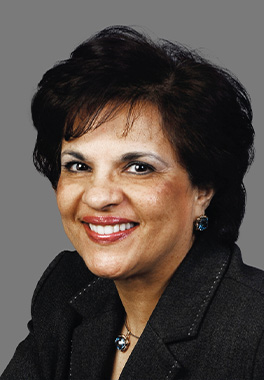
Effects of Climate Change on Human Rights
Inquiry—Debate Continued
March 10, 2016
The Honorable Senator Mobina S. B. Jaffer:
Honourable senators, as you know, yesterday I started an inquiry on climate change and how it affects human rights. Unfortunately we ran out of time, and I would like to finish my inquiry from yesterday.
What this means is that we have a right to live a life without being harmed by others. Climate change, and the human impact that is contributing to it, is affecting the right to life of the most vulnerable in our world. Their livelihood is being harmed as a result of the devastation caused by an increased number of extreme weather events and landform changes. Their chances of sustaining their own lives are being threatened.
As Oxfam International has noted:
In failing to tackle climate change with urgency, rich countries are effectively violating the human rights of millions of the world's poorest people.
The sixth is the right to self-determination. Certain peoples' right to self-determination will be threatened due to climate change. The fate of entire nations is at stake. With sea levels rising at their current rate, low-lying Pacific Island nations, including Kiribati and Tuvalu, could be submerged within decades. The UN has already begun referring to these peoples as potential climate refugees.
Honourable senators, when we think about the effects of climate change on humanity and economies, we cannot think only about one dimension. Mitigating how the effects are going to impact all of these areas is imperative. As Mark Carney, Governor of the Bank of England, noted in his speech to Lloyd's:
The far-sighted amongst you are anticipating broader global impacts on property, migration and political stability, as well as food and water security.
So why isn't more being done to address it?
Honourable senators, this is the question I ask today. Why not?
I want to end by sharing a story with you, written about in an article by Canadian youth activists Craig and Marc Kielburger earlier this year:
Inuit activist Sheila Watt-Cloutier remembers the day her neighbour didn't come home.
Simon Nattaq lives across the street from Watt-Cloutier in Iqaluit, Nunavut. He's a hunter with decades of experience and traditional knowledge handed down through generations. He knows the land — when it's safe to go out on the ice. But in February 2001, an unexpected weak spot on a normally safe trail caught him by surprise and his snowmobile plunged through the ice.
Nattaq clambered out of the water and survived until rescuers found him two days later. By then, frostbite had done its work. Both of Nattaq's legs had to be amputated.
For Watt-Cloutier — a former politician and chair of the Inuit Circumpolar Conference — the story illustrates how climate change attacks not just the environment, but the very foundations of Inuit knowledge, tradition and identity.
Honourable senators, climate change is going to affect us all — us as Canadians, us as human beings. Today I echo Mr. Carney's question: Why isn't more being done to address it?
Thank you for your attention.

